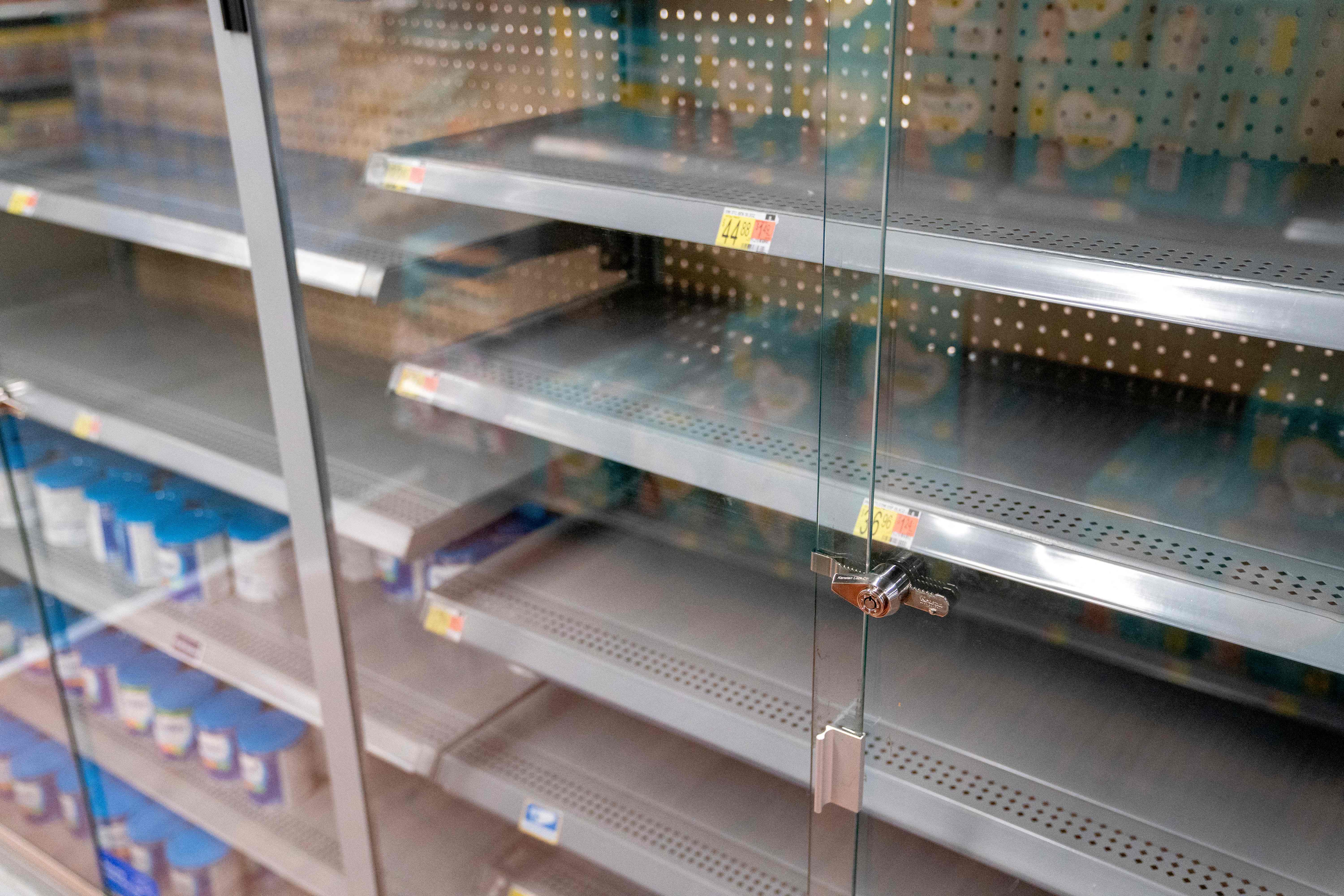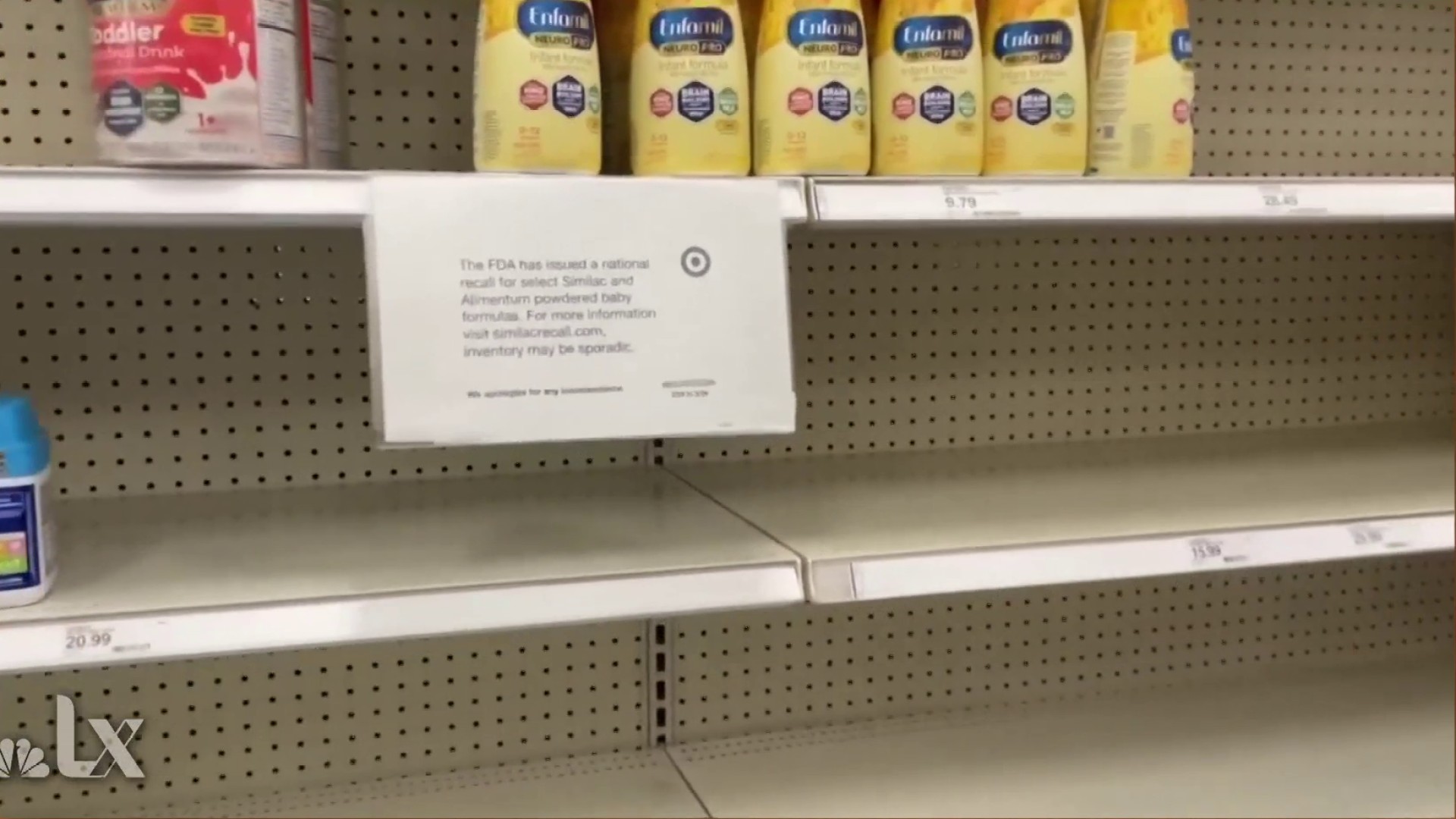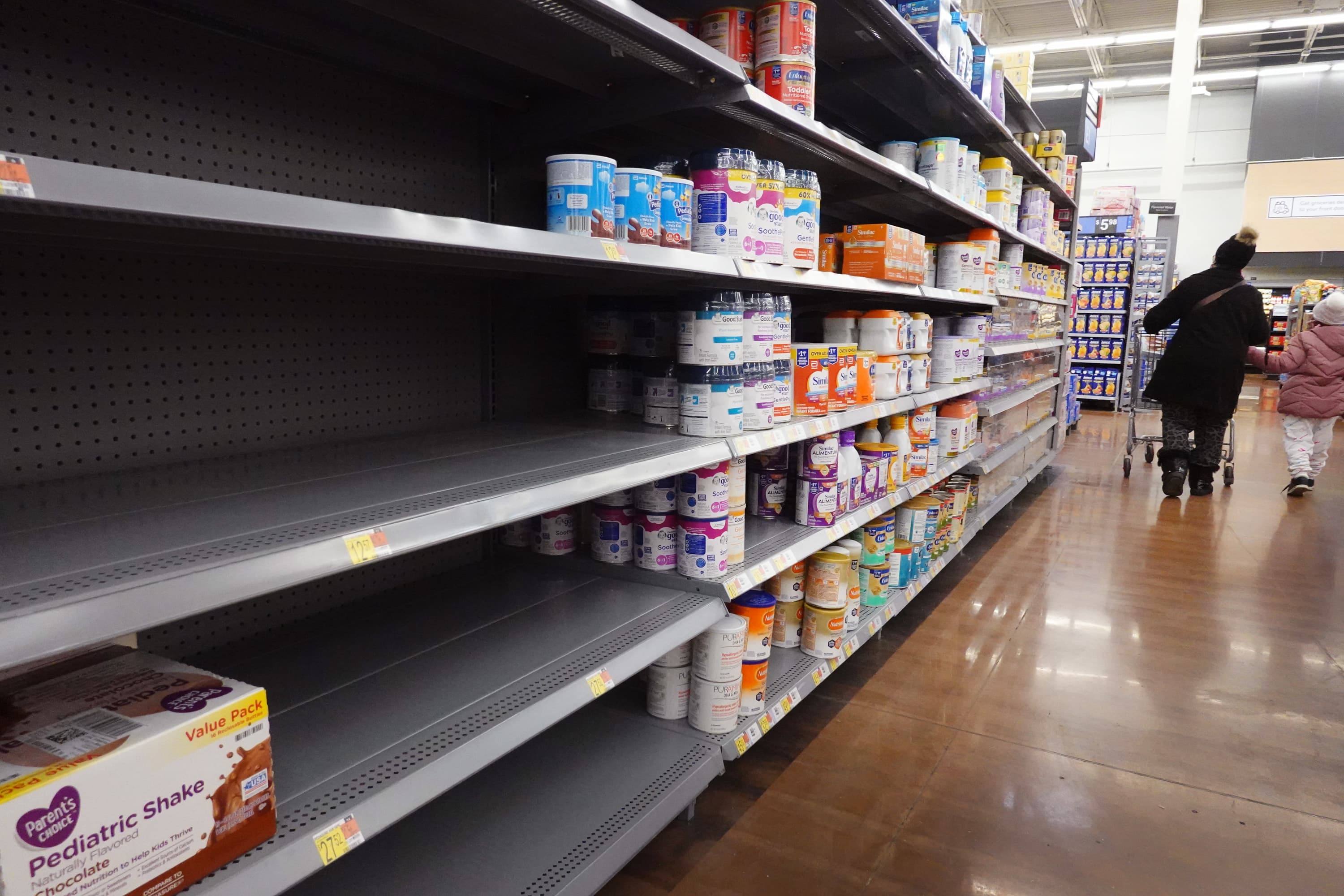The nationwide baby formula shortage has parents scrambling to find food for their infants, and federal agencies are warning about potential scams and harmful backup options.
The shortage is hard enough on parents, and it’s colliding with raging inflation.
“I went to three different Targets,” said new dad Bobby Singleton. “I went to Walgreens down the street, a CVS.”
“I can find cans one or two here and there but trying to find a bunch in one place is really hard, and now that they’re limiting how many you can get it’s also really stressful,” said new mom Michelle Sorrentino. “So we have to go to multiple places to get a few.”
But there's more than just the lack of supply to worry about. The shortage has whipped up a slew of scams, as well. The Better Business Bureau is warning people to be careful if they're searching for baby formula -- especially online. Scammers show images of formula, but then nothing's delivered once a payment is made.
“I think it’s absolutely sinful if you would take advantage of a baby and a desperate mother and a desperate father,” said new mom Nisreen Bayazid.
Bayazid even drove from Westwood, Massachusetts, to Connecticut to help feed her 2-month-old son Hugo.
“Unfortunately I was diagnosed with Stage Zero breast cancer when I was pregnant with him and so I can only breastfeed from one side anyway so I have to rely on formula to give him most of his nutrition and I had to drive three and a half hours south of here just to get formula to keep my baby nourished and that’s terrifying,” said Bayazid.
The scams are just one more thing to be anxious about, but these parents say they’re steering clear of suspicious sites.
“He’s growing like a weed, I have to keep feeding him, I don’t have an alternative, he’s only two months old, it’s ten months before I can get him off the formula and into cow milk,” Bayazid added.
Baby formula scam warning from the BBB
The Better Business Bureau is warning to beware of scammers who will try to take advantage of the situation.
Some scams come in the form of fake websites, or social media posts by people who say they have extra formula for sale and ask for payment through a cash app or services like Venmo or Paypal.
When possible, purchase with a credit card – they often offer more protection against fraud than other payment options.
The BBB says if you’re ordering from a website, do a quick search online with the company name and the word “scam” – this could locate other complaints about the site or product.
You can also take a screenshot of the item ordered in case the site disappears, or you receive something different in the mail.
And as always, think before you click, and be especially cautious about online ads and email solicitations.
Some signs of a potential scam can be found with a quick Google search. Look out for things like positive reviews on the website that may have been copied over from other sites, misspellings and grammatical errors, no indication of a brick & mortar address, or the address shows on a Google map as a parking lot, residential home or unrelated business.
You can report potential scams to the BBB or Federal Trade Commission. Platforms like Facebook, Amazon and Paypal have their own reporting systems as well. If you used a credit card, you can also report potential fraud to the credit card company.
Be cautious of trying alternatives
The FDA warns that parents should not try to make formula at home. There are posts online with recipes in local mom groups, but experts say homemade formula could lack essential nutrients and be dangerous for your baby.
You should also never dilute the formula with extra water or milk to make it last longer.
The agency also advises consumers to avoid purchasing imported formula through online sales because it could be counterfeit, meaning the project could have inaccurate labels like the "use by date" or active ingredients.
Pediatricians also do not recommend ordering formula from overseas, as it is not FDA regulated and may not meet U.S. standards.
More on the baby formula shortage
So, what can you do?
WIC, the Women, Infant and Children nutrition program, says to protect your infants, be on the lookout for changes in formula color, smell or taste.
If buying by the case, make sure the lot numbers and dates on the containers and boxes match.
If you have any concerns, don’t hesitate to call the manufacturer. And if you’re struggling to find formula, call your pediatrician to see if they can offer you a sample.
If you’re a WIC participant you can call your local WIC office.
The Infant Nutrition Council of America also suggests parents in need contact their local food pantries, churches, shelters and hospital emergency rooms as they may provide small amounts of infant formula in emergency situations.
Parents can also contact Feeding America or dial 2-1-1 to be connected to a community resource specialist who can help you find local resources.
Why is the shortage happening?
The current shortage is the result of a combination of ongoing supply chain issues, and a product recall by Abbott Nutrition in February. The company, a major manufacturer of formula products, shut down its Sturgis, Michigan, factory when federal officials began investigating four babies who suffered bacterial infections after consuming formula from the facility.
Baby formula has become increasingly unavailable in the U.S. over the last 10 months, reaching an out-of-stock rate of 43% for the week ending May 8, according to data collected by Datasembly.
President Joe Biden spoke Friday to confirm steps being taken by the FDA and HHS to alleviate shortages in baby formula, including loosening the brand eligibility for WIC programs and a platform to help parents find specific products.




